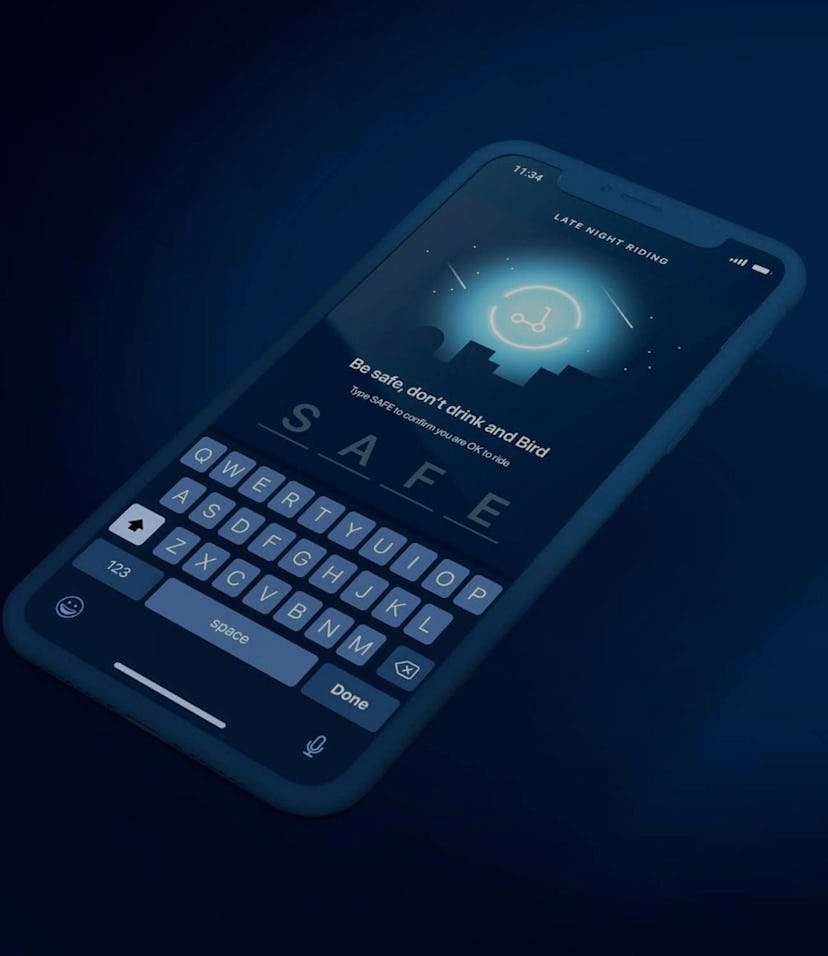Tech
Bird will now test you to make sure you’re not too drunk to scoot
A new feature will ask late-night riders to pass a test in order to rent a scooter.

Bird, the micro-mobility startup that offers rentals of electric scooters and bikes, is introducing a new safety feature. Now during night hours, its app will try to detect when a rider is under the influence and prevent them from getting on a vehicle if they are.
Between the hours of 10 p.m. and 4 a.m., a new in-app checkpoint called Safe Start will appear, asking riders to correctly type a specific keyword into the app before they can rent a scooter or bike. The idea being if you’re hammered you won’t be able to enter the word “SAFE” (or whatever else it might be, we’re hoping it’ll be something more taxing than that), at which point Bird will recommend an alternative form of transport.
According to Bird, Safe Start is already being tested in the United States and will be rolled out globally through the summer.
Safety third — Safety concerns have long plagued shared electric scooter companies, as gnarly spills frequently made headlines in the early days of the services. While Bird and others technically require that all riders wear helmets, they’re really operating on the honor system and enforcement is non-existent. Injury statistics suggest, unsurprisingly, that electric scooter accidents have risen in conjunction with the adoption of shared scooter programs.
Arguably, if a rider is going to act irresponsibly that’s on them when they get hurt... but with a typical maximum speed of 15mph, falling off a scooter can lead to serious injury, and can result in injuries to bystanders. It’s the least Bird can do adding a basic test that thwarts some intoxicated people from getting on a scooter in the first place.
More scooter users, please — These concerns aside, however, electric scooters and bikes have many positives. They’re practical, because you can get around quickly on them, and they’re generally better for the environment than passenger vehicles because they release zero emissions and don’t create the same type of congestion. Bird and others have partnered with cities around the globe to supplement public transportation where it’s lacking, giving people an efficient way to cover the last mile to their destinations. Better public transit would be ideal, too, but that’s an issue for public entities, rather than private companies.
Bird only recently introduced e-bikes to its fleet, making it clear that it wants to be not just a shared scooter company but a more general provider of micro-mobility solutions in cities.